As we age, what we eat becomes even more important for maintaining health and vitality. Good nutrition can help seniors fight disease, stay mentally sharp, and keep energy levels high. This guide highlights ten powerhouse foods that should be on every senior’s weekly menu, along with five items best avoided for optimal health.
1. Leafy Greens: Nature’s Multivitamin
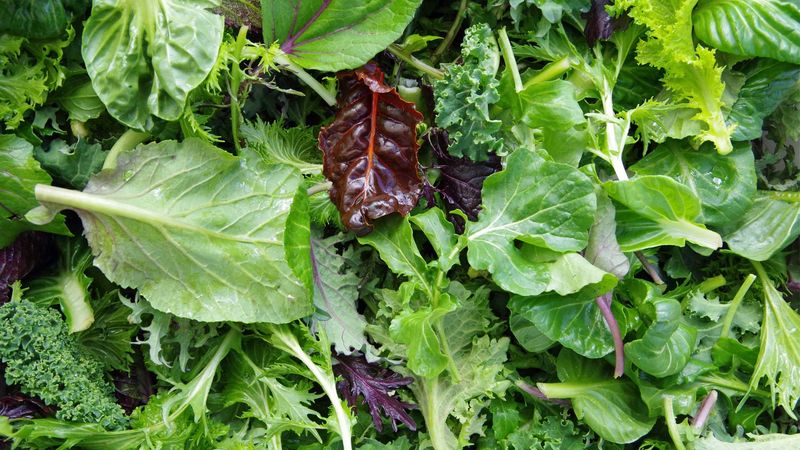
Spinach, kale, and Swiss chard are nutritional powerhouses that deserve a special place on every senior’s plate. These verdant vegetables are packed with fiber to keep digestion running smoothly and folate which supports heart health. T
he abundance of vitamin K in leafy greens helps maintain strong bones—particularly important as bone density naturally decreases with age. Their antioxidant content fights inflammation throughout the body, potentially slowing cognitive decline and supporting brain function.
Try adding a handful to smoothies if chewing is difficult, or sauté them with a little olive oil and garlic for a delicious side dish. Even small amounts consumed regularly can provide significant health benefits for aging bodies.
2. Fatty Fish: Brain-Boosting Protein
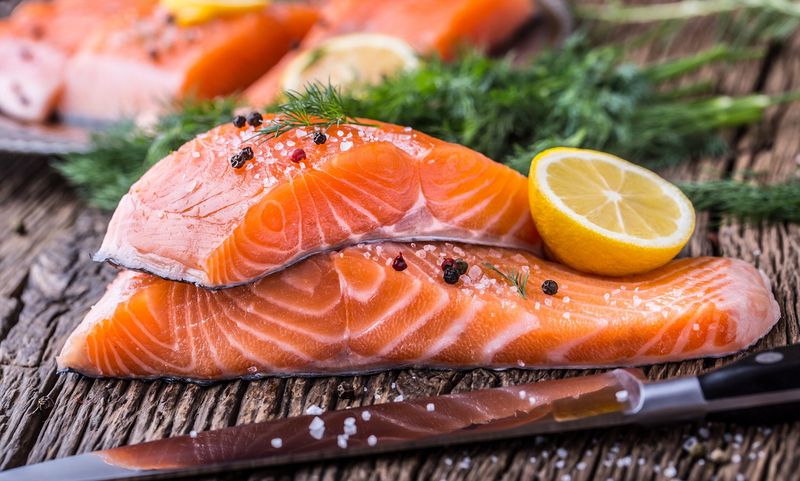
Salmon, sardines, and mackerel aren’t just delicious—they’re medicine for aging bodies. Rich in omega-3 fatty acids, these fish varieties help combat inflammation that can contribute to heart disease, arthritis, and cognitive decline.
The high-quality protein in fatty fish supports muscle maintenance, which becomes increasingly important as we age and naturally lose muscle mass. For seniors concerned about bone health, smaller fish with edible bones (like sardines) provide an excellent source of calcium. Aim for two servings weekly to reap the benefits.
Don’t worry if fresh isn’t available—canned versions retain most nutrients and often cost less. Your brain, heart, and joints will thank you for making fatty fish a regular part of your diet.
3. Berries: Tiny Fruits with Mighty Benefits
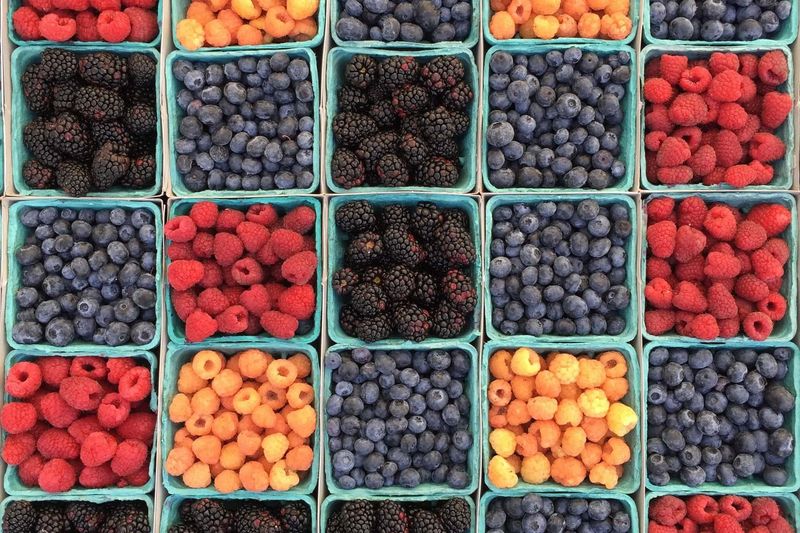
Blueberries, strawberries, and raspberries might be small, but their health impact for seniors is enormous. These colorful fruits contain some of the highest antioxidant levels of any food, helping to neutralize harmful free radicals that contribute to aging and disease.
Regular berry consumption has been linked to improved memory and brain function—crucial benefits for aging adults. Their natural sweetness satisfies sugar cravings while their fiber content helps regulate blood sugar, unlike processed sweets.
Fresh berries are wonderful when in season, but frozen varieties maintain nearly identical nutritional profiles and are available year-round. Add them to morning oatmeal, blend into smoothies, or simply enjoy as a naturally sweet snack that supports long-term brain health.
4. Greek Yogurt: Protein-Packed Calcium Source
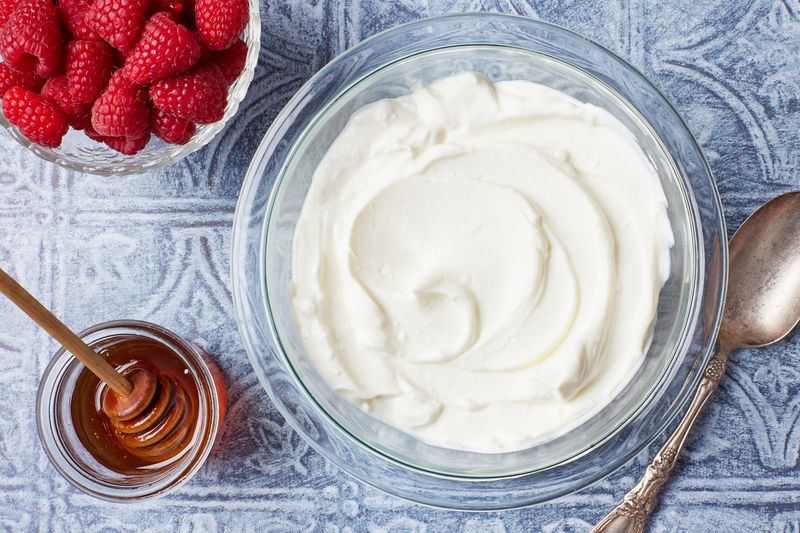
The creamy texture of Greek yogurt hides its remarkable nutritional profile that makes it ideal for seniors. With nearly double the protein of regular yogurt, it helps preserve muscle mass that naturally diminishes with age.
Calcium content supports bone health at a time when osteoporosis becomes a concern, especially for older women. The live cultures in Greek yogurt act as probiotics, supporting gut health and potentially boosting immune function—particularly valuable for seniors whose immune systems may be less robust. Unsweetened varieties provide the most health benefits without added sugars.
Top with berries and a drizzle of honey for a satisfying breakfast or snack. For those who are lactose intolerant, Greek yogurt is often better tolerated than milk due to its lower lactose content.
5. Nuts: Heart-Healthy Snacking
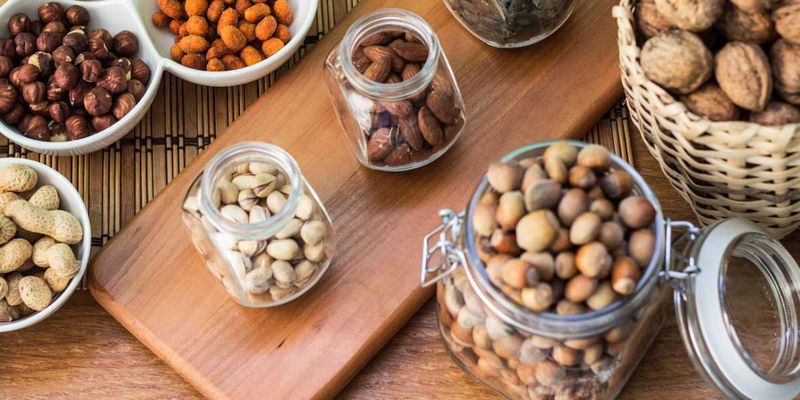
A handful of walnuts or almonds might be the simplest health upgrade for seniors. These nutrient-dense powerhouses contain heart-healthy monounsaturated and polyunsaturated fats that help lower bad cholesterol levels and reduce inflammation.
Walnuts deserve special mention for their brain benefits—their omega-3 content and antioxidants may improve cognitive function and memory. The protein and fiber in nuts help maintain steady blood sugar and provide lasting energy, making them perfect between-meal snacks. Despite their calorie density, studies show nut consumers tend to maintain healthier weights.
The satisfying crunch and flavor make them enjoyable without additives. Store nuts in the refrigerator to preserve their healthy oils and prevent rancidity, especially if buying in bulk.
6. Whole Grains: Fiber-Rich Energy Source
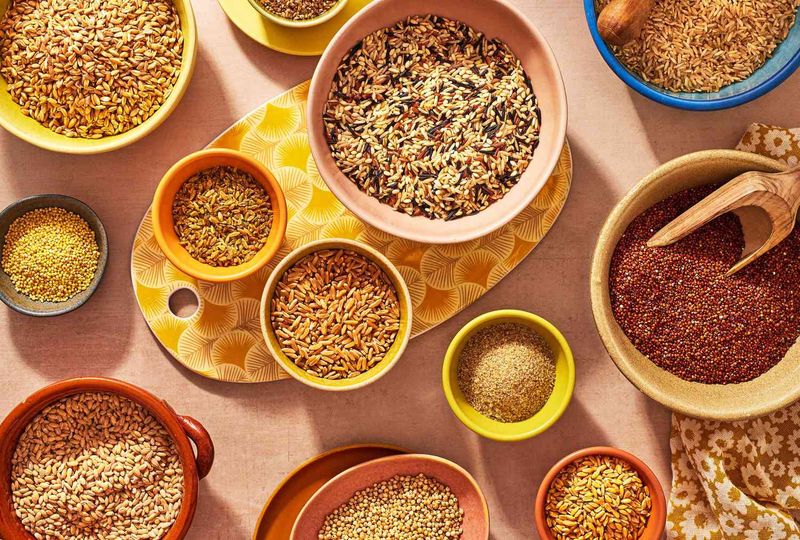
Oats, quinoa, and brown rice should replace refined grains in every senior’s pantry. These whole grain champions contain the entire grain kernel—the bran, germ, and endosperm—preserving all their natural fiber, vitamins, and minerals.
The soluble fiber in oats helps lower cholesterol, while the slow-digesting complex carbohydrates in whole grains provide steady energy without blood sugar spikes. This is especially important for seniors managing or preventing diabetes.
Start mornings with oatmeal topped with berries, use quinoa as a protein-rich base for lunch bowls, or serve brown rice with dinner. These simple swaps create lasting health benefits including better digestion, reduced inflammation, and potentially lower risk of heart disease—all crucial factors for healthy aging.
7. Legumes: Plant-Powered Protein Stars
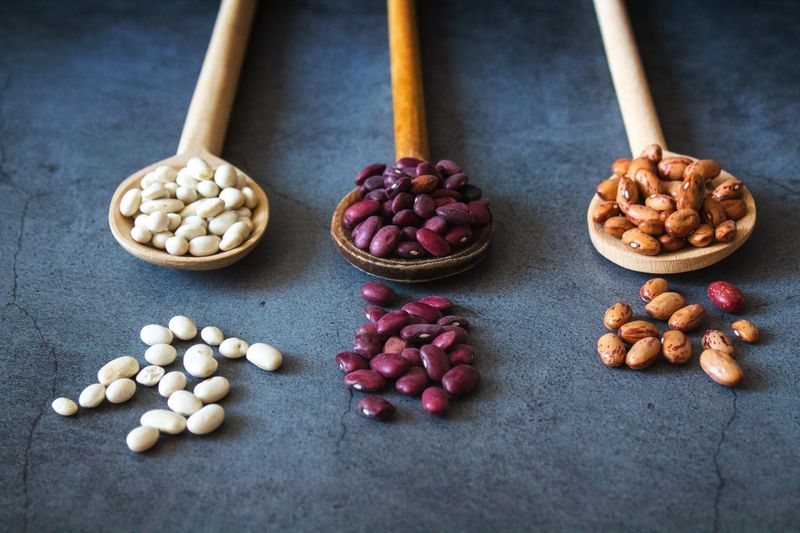
Lentils, chickpeas, and black beans offer seniors an affordable nutrition goldmine. These humble legumes pack impressive amounts of plant-based protein without the saturated fat found in many animal sources—a win for heart health.
Their high fiber content supports digestive regularity, often a concern for older adults. Legumes also provide folate, which protects heart health, and magnesium, which helps maintain proper muscle and nerve function. Canned varieties make preparation simple—just rinse to reduce sodium.
Add chickpeas to salads, blend them into hummus, use lentils in soups, or enjoy black beans with rice. For seniors watching their budgets, legumes stretch meal dollars while providing exceptional nutrition that supports healthy aging and helps maintain stable blood sugar levels.
8. Eggs: Complete Protein Packages

The humble egg might be nature’s perfect food for seniors. Each egg contains all nine essential amino acids, making it a complete protein source that helps maintain muscle mass—crucial as we age and naturally lose muscle.
Beyond protein, eggs provide lutein and zeaxanthin, two antioxidants that support eye health by reducing the risk of cataracts and macular degeneration. They’re also one of the few natural sources of vitamin D, which helps calcium absorption for stronger bones.
Contrary to outdated concerns, research shows moderate egg consumption doesn’t raise cholesterol in most people. Soft-boiled or scrambled eggs are easier to chew for those with dental issues. Keep hard-boiled eggs in the refrigerator for quick, nutritious snacks that support brain health thanks to their choline content.
9. Cruciferous Vegetables: Cancer-Fighting Powerhouses
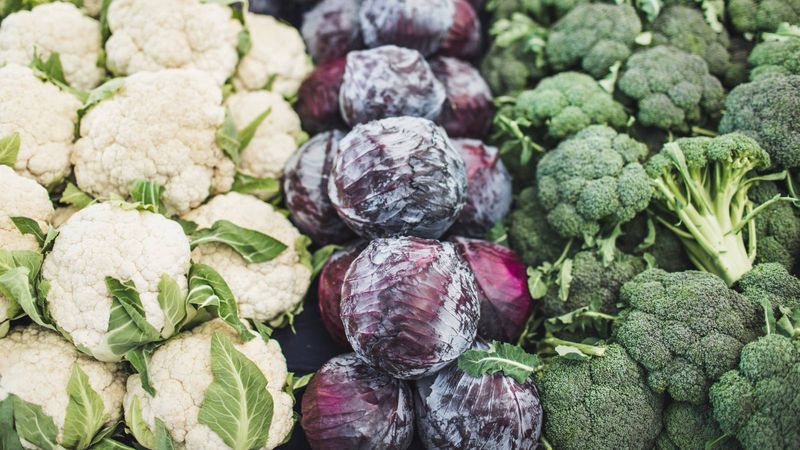
Broccoli, Brussels sprouts, and cauliflower contain unique compounds that make them nutritional superstars for seniors. These vegetables are packed with sulforaphane, a compound that supports the body’s natural detoxification processes and has been linked to cancer prevention.
Their impressive vitamin C content boosts immune function—particularly important for older adults whose immune systems naturally weaken with age. The vitamin K in these vegetables supports bone health and proper blood clotting. Roasting cruciferous vegetables with olive oil brings out their natural sweetness and makes them more digestible.
Try cauliflower rice as a lower-carb alternative to traditional rice, or add broccoli to stir-fries for texture and nutrition. Even eating these vegetables just 2-3 times weekly may provide significant protective benefits.
10. Sweet Potatoes: Vibrant Vitamin A Boosters

The brilliant orange flesh of sweet potatoes signals their exceptional nutritional value for seniors. Their rich beta-carotene content converts to vitamin A in the body, supporting vision and immune function that often decline with age.
Unlike regular potatoes, sweet potatoes have a lower glycemic index, meaning they cause a gentler rise in blood sugar—beneficial for seniors managing diabetes or watching their glucose levels. They’re also loaded with potassium, which helps maintain healthy blood pressure. Baking or steaming preserves most nutrients while creating a naturally sweet treat requiring minimal additives.
The soft texture makes them easy to chew and digest. Keep the skin on when possible—it contains additional fiber that supports digestive health and helps prevent constipation, a common concern among older adults.
1. Processed Meats: Hidden Health Hazards

Bacon, sausages, and deli meats might taste delicious, but they pose significant risks for seniors. These products typically contain alarming levels of sodium—a single serving can provide nearly half a day’s recommended limit, potentially aggravating high blood pressure and heart conditions common in older adults.
The nitrates and nitrites used as preservatives have been linked to increased cancer risk, particularly colorectal cancer. For seniors already facing higher cancer risks due to age, this additional exposure is concerning. When craving these flavors, look for healthier alternatives.
Try chicken breast instead of processed deli meats, or use mushrooms to create savory umami flavors without the health drawbacks. Your heart and digestive system will benefit from removing these processed products from your regular diet.
2. Sugary Drinks: Liquid Trouble for Aging Bodies

Sodas, sweetened teas, and energy drinks deliver a double blow to senior health. The rapid sugar absorption causes dangerous blood glucose spikes—particularly problematic for older adults with diabetes or pre-diabetes.
Research links regular consumption of these beverages to increased dementia risk, a connection every senior should take seriously. The empty calories contribute to weight gain without providing any nutritional benefit, potentially worsening joint pain and mobility issues. Water remains the best choice for hydration, but unsweetened alternatives can add variety.
Try sparkling water with a splash of juice, herbal teas (hot or cold), or water infused with cucumber and mint. Small changes like eliminating sugary drinks can dramatically improve long-term health outcomes and help maintain cognitive function through the later years.
3. Fried Foods: Inflammation Triggers

French fries, fried chicken, and other deep-fried favorites create problems that seniors can’t afford to ignore. The high-temperature cooking process creates advanced glycation end products (AGEs) that accelerate aging and promote inflammation throughout the body.
For seniors already managing inflammatory conditions like arthritis, these foods can trigger painful flare-ups. The unhealthy trans fats often found in fried foods raise bad cholesterol while lowering good cholesterol—a dangerous combination for heart health. Healthier cooking methods can deliver similar satisfaction without the health drawbacks.
Try air-frying, which uses minimal oil, or oven-baking with a light oil spray. Roasted sweet potato wedges can satisfy a fry craving, while baked chicken with herbs provides flavor without the inflammatory effects of its fried counterpart.
4. White Bread: The Refined Carb Trap

White bread and other refined carbohydrates may seem harmless, but they present real concerns for senior nutrition. The refining process strips away the fiber, vitamins, and minerals found in whole grains, leaving little more than quickly-digested starch.
This rapid digestion causes blood sugar spikes followed by crashes—a particular problem for seniors managing diabetes or pre-diabetes. The lack of fiber can worsen constipation, already a common issue among older adults. Fortunately, delicious alternatives abound. Look for 100% whole grain breads where whole wheat flour appears first on the ingredient list. Sprouted grain breads offer additional nutritional benefits and often have a lower glycemic impact.
Even small changes like switching from white to whole grain bread can significantly improve nutritional intake and energy levels.
5. High-Sodium Packaged Foods: Silent Blood Pressure Elevators

Canned soups, instant noodles, and frozen meals often harbor dangerous sodium levels that can wreak havoc on senior health. A single serving frequently contains more than half the daily recommended sodium limit, potentially raising blood pressure and increasing stroke risk.
Aging kidneys process sodium less efficiently, making seniors particularly vulnerable to its effects. The convenience of these foods comes at a steep health price, especially for those already managing hypertension or heart conditions. Reading nutrition labels becomes essential—look for products with less than 140mg sodium per serving.
Better yet, prepare simple homemade alternatives when possible. Make large batches of homemade soup with controlled sodium and freeze portions for convenience. Your heart, kidneys, and blood vessels will benefit from this mindful approach to sodium intake.
Leave a comment